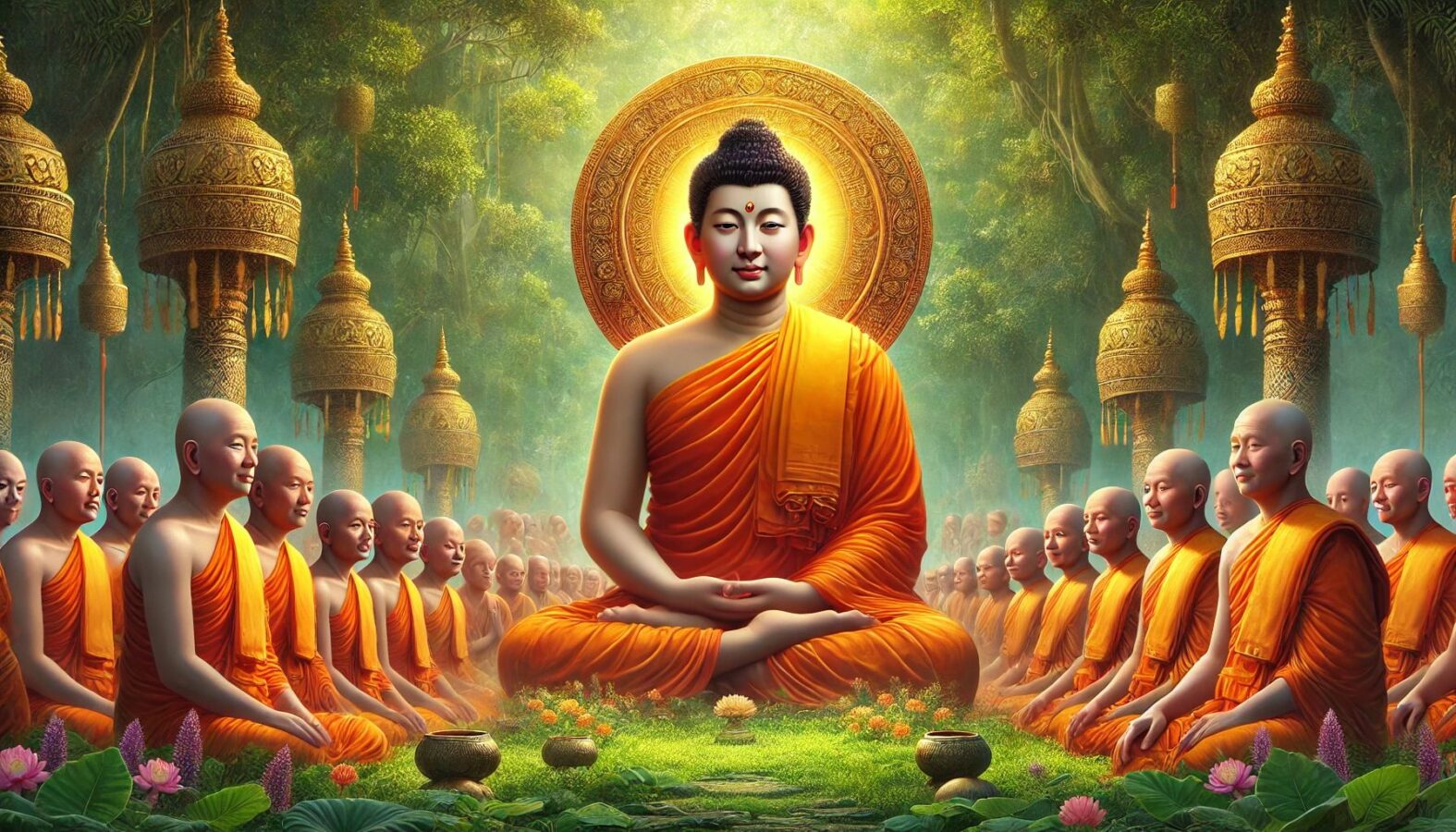
Date: 07/05/2025 07/06/2025
Location: Star River Meditation Center
Teacher: Yunquan Huang
Dharma Talk
The Quarrel among the Bhikkhus of Kauśāmbī and the Teaching on the Six Principles of Harmony
Thus have I heard:
At one time, the Blessed One was residing in the Ghositārāma Monastery near the city of Kauśāmbī.
It happened then that the monks dwelling in Kauśāmbī fell into dispute regarding whether a certain monk had committed a transgression. Their disagreement grew into contention and division. Two factions arose, speaking harshly and abusively against one another.
Hearing of this, the Blessed One journeyed to the Ghosita Park in Kauśāmbī to reconcile the Saṅgha.
Upon arrival, the Blessed One inquired:
“Bhikkhus, it is said that you have entered into disputes over a matter concerning a possible transgression. You speak to each other with harsh words, rebuke one another, and have failed to admonish or console one another with loving concern. You disagree, and harmony is lost. Is this true?”
The monks replied:
“Yes, World-Honored One, it is as you have said.”
The Blessed One then said:
“Bhikkhus, there are six things that promote unity, prevent disputes, and preserve harmony in the Saṅgha. What are these six?
1. Loving-kindness in bodily action—both in public and in private.
2. Loving-kindness in speech—both in public and in private.
3. Loving-kindness in thought—both in public and in private.
4. Sharing of requisites, including food.
5. Observance of common precepts.
6. Harmony in view, grounded in noble liberation.
Among these, bhikkhus, the sixth—harmony in view aligned with the noble vision of liberation—is supreme. It is the pinnacle, like the summit of a tiered tower.
And what, bhikkhus, is this noble vision of liberation that leads to the end of suffering?
A monk reflects and knows: ‘Greed, hatred, sloth, restlessness, doubt, wrong views, and contention with others—these are the fetters that obscure right understanding.’ This is the first knowledge, noble, supramundane, not shared by the worldly.
Further, he understands: ‘Through training and retraining in this vision, one gains inner peace.’ This is the second knowledge, noble and supramundane.
He further knows: ‘Such a view is not found among other wanderers or brahmins.’ This is the third knowledge, noble and supramundane.
And just as one possessing right view, when committing an offense, quickly confesses and restrains himself from future wrongs—as naturally as a child recoils when its hand touches fire—so too this is the fourth knowledge, noble and supramundane.
He bears keen concern for the progress of his fellow practitioners in morality, concentration, and wisdom—just as a cow watches over her calf. This is the fifth knowledge, noble and supramundane.
He listens intently to the teachings of the Tathāgata with eagerness and receptivity. This is the sixth knowledge, noble and supramundane.
And upon receiving the Dhamma and Vinaya of the Tathāgata, he gains understanding of meaning, experiences the Dhamma, and is uplifted with joy. This is the seventh knowledge, noble and supramundane.
One endowed with these seven qualities, bhikkhus, has entered the stream of the Dhamma—a stream-enterer (sotāpanna).”
Yet, the monks of Kauśāmbī replied:
“World-Honored One, this matter concerns us alone. Please do not trouble yourself over it.”
The Blessed One rebuked them:
“Foolish men! Is it right that you reject the word of the Tathāgata?”
The Blessed One then spoke to them the story of Prince Long-Life and the Power of Patience:
Long ago, in the city of Śrāvastī, there ruled a king named King Long-Life. He was defeated by King Brahmadatta of Benares and fled into the wilderness.
Later, while secretly returning to his homeland, he was discovered and captured. Before his execution, he gave a final instruction to his son, Prince Long-Life:
“Son, remember this—hatred is not appeased by hatred; only by non-hatred is hatred appeased.”
The prince, later taken into King Brahmadatta’s court, gained the king’s favor through his musical skill and song.
One day, as the king slept on the prince’s lap, all guards were absent. Seizing the chance to avenge his father and homeland, the prince drew his sword. But recalling his father’s words, he refrained.
The king awoke, repented, and restored the prince’s kingdom in peace.
After telling this story, the Blessed One said:
“Bhikkhus, even kings at war can refrain from harming one another. How much more so should you, who have renounced the world and seek to abandon greed, hatred, and delusion, avoid quarrels!
You share the same Teacher, the same training—do not engage in conflict.”
Yet the monks persisted:
“World-Honored One, we ask that you leave this matter to us. We will resolve it ourselves.”
Seeing that they would not accept his counsel, the Blessed One departed from them and journeyed to the land of the Vajjis.

